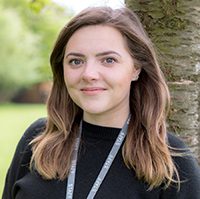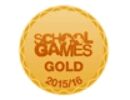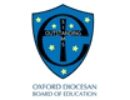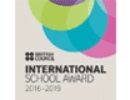History and Geography
What does Humanities look like?
Intent
At Brill School, we aim to provide our children with geographical and historical experiences to add breadth and depth to their knowledge and understanding of the world around them. Building on the children’s experiences we will enrich their knowledge of the physical and human processes that form our landscapes and environments.
Through exploring the world together at Brill School, we aim to challenge our children to become inquisitive and equip them with awareness, resilience and the ability to ask questions about our planet and its inhabitants. As children progress, they are encouraged to develop a greater understanding and knowledge of the world, as well as their place in it. Through enriching experiences, the children will gain knowledge of the physical side of the Earth’s natural features such as mountains, deserts, rivers and oceans. They will learn about human geography including the impact that humans have had on the world and how the natural world has affected them. Introducing awareness of environmental issues will equip the children to understand and formulate their own ideas regarding sustainable development.
Through the teaching and learning of History and geography, children will be able to make links and comparisons between past events and the impact on today’s society. We believe that through this approach we will be supporting our pupils to becoming a ‘Brill Child’.

Year 3 Teacher
|
|
Geography Coordinator
|
Implementation
Our wide-ranging topics ensure our children at Brill School develop a broad understanding of the world and our history. The content of our lessons is diverse and offers children the opportunity to study the relationships between different groups, the significance of individuals and the challenges faced by communities. Geography and History is taught throughout the year through engaging and challenging lessons which are age appropriate.
Geography lessons develop a range of geographical skills and a variety of learning styles to engage all learners, including those with SEND.
At Brill School, we recognise the importance that fieldwork in educational visits plays in developing the children as geographers and learners. We utilise the local area as well as residential visits in KS2 to provide children with exciting and engaging first hand and practical experiences.
Impact
At the end of their Brill journey, pupils will have questioned how hunter-gatherers became farmers in the Stone Age, understood how climate impacted the Olympic Games in Ancient Greece, marvelled at the significance of Rosa Parks’ split second decision and considered how different our lives would be without the Romans. Children will understand the importance of tolerance and compassion. They will have an understanding of the sacrifices some have made, and the impact past decisions have had on our future. They will have developed a passion for the world around them and a sense of their place within it. Most importantly, they will be well prepared for the inevitable challenges and changes of their time.
We want to equip our children with the knowledge of how their actions impact the world. The children will have a breadth and depth of knowledge that will equip them as they progress into KS3.
All Humanities teaching is purposeful so that children understand why they are focusing on a particular topic or skill. Enquiry and skills-based learning is fundamental in shaping resilient, life-long learners. Our children learn what it is to be a Historian and Geographer; they ask perceptive questions about bias, investigate primary source material, think critically, weigh evidence and make links and comparisons with existing knowledge. They consider multiple perspectives and narratives and learn to make informed opinions and judgements. We conduct fieldwork in the grounds and local area, visit exciting places, study artefacts and use drama to bring these subjects to life. Our topics are often child-led by following a line of enquiry or a burning question asked at the outset. A strong focus on chronology, and cause and effect, is woven through each lesson.
Our wide-ranging topics ensure our children develop a very broad understanding of the world and our history. Themes of memory and significance, change and adaptation, physical vs. human processes are threaded through every year group’s topics. The content has a diverse, global reach: our children have the opportunity to study the relationships between different groups, the significance of hidden individuals and the challenges faced by remote communities. They study the sites of famous battles and the homes of forgotten historical individuals. They compare ancient natural environments with our modern-day world, and consider the impact humans have had over time.
Link Table block is missing information
Link Table block is missing information
Link Table block is missing information







